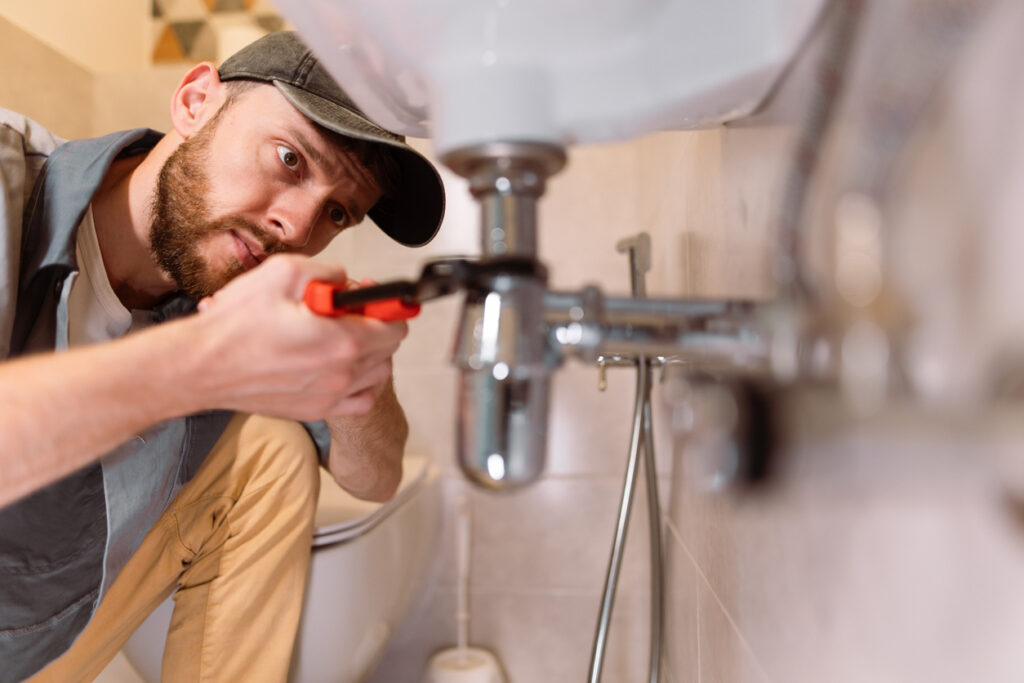Your home’s plumbing system is often out of sight and out of mind, quietly working behind the scenes to keep your household running smoothly day in and day out. In fact, it’s often not until there’s a problem that we pay any attention to the home plumbing system at all. However, neglecting regular maintenance and inspections can lead to costly repairs and water damage down the line.
Today, we’ll explore the importance of having a home plumbing inspection and discuss when you should know it’s time to schedule one.
Why Home Plumbing Inspections Matter
- Prevent Costly Repairs: Regular inspections allow your plumber to catch small issues before they escalate into major problems. By addressing minor leaks, clogs, or corrosion early on, you can avoid costly repairs and water damage to your home.
- Ensure Safety: Faulty plumbing systems can pose safety hazards such as water leaks, mold growth, or even gas leaks in the case of natural gas lines. A thorough inspection can identify potential safety risks and ensure that your home’s plumbing meets all code requirements.
- Maintain Water Efficiency: Leaky faucets, running toilets, or inefficient water heaters can waste gallons of water and drive up your utility bills. A plumbing inspection can identify areas where water is being wasted and recommend upgrades or repairs to improve water efficiency.
- Extend the Lifespan of Your Plumbing System: Just like any other system in your home, regular maintenance can extend the lifespan of your plumbing system. By addressing wear and tear proactively, you can avoid premature failure of pipes, fixtures, and appliances.

Signs You Need a Plumbing Inspection
- Low Water Pressure: If you’ve noticed a sudden decrease in water pressure throughout your home, it could indicate a clog or leak in your plumbing system. A plumbing inspection can identify the source of the problem and recommend appropriate repairs.
- Frequent Clogs: Persistent clogs in sinks, toilets, or showers may indicate a larger issue within your plumbing system, such as tree root intrusion or a sewer line blockage. A professional inspection can determine the cause of the clogs and provide solutions to prevent future backups.
- Visible Signs of Water Damage: Stains on walls or ceilings, musty odors, or mold growth are all indicators of water leaks in your home. Even if the source of the leak is not immediately apparent, a plumbing inspection can help locate hidden leaks and prevent further damage.
- Old or Outdated Plumbing: If your home has outdated plumbing fixtures or pipes, it may be time for an inspection to assess their condition and recommend upgrades or replacements. Older plumbing systems are more prone to corrosion, leaks, and other issues that can compromise their integrity.
- Preparing for Home Sale or Purchase: If you’re buying or selling a home, a plumbing inspection is essential to ensure that the plumbing system is in good condition. For sellers, a pre-listing inspection can identify any issues that need to be addressed before putting the home on the market. For buyers, a plumbing inspection can uncover hidden problems that may affect the home’s value or negotiation process.
By addressing issues proactively, you can avoid costly repairs, ensure safety, and prolong the lifespan of your plumbing system. If you’ve noticed any signs of plumbing problems or it’s been more than a year since your last inspection, contact Eagle Service Company today. We are at your service for all your plumbing needs.


